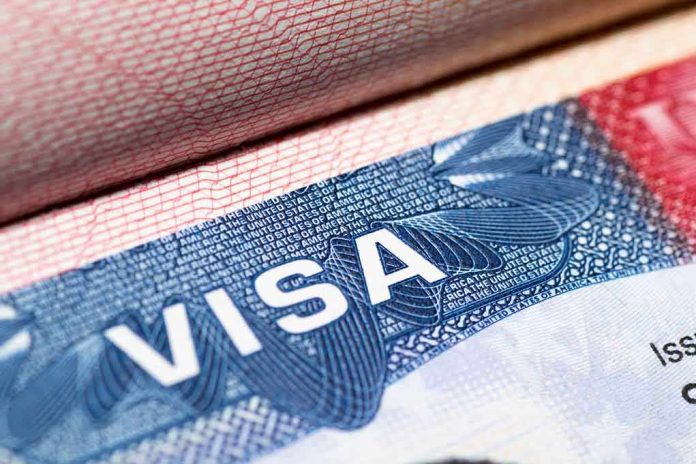
President Trump’s proposal to allow 600,000 Chinese students into the U.S. has ignited a fierce backlash from conservatives concerned about national security and American values.
Story Snapshot
- Trump’s proposal for 600,000 Chinese student visas sparks conservative outrage.
- Concerns about national security and the influence of the Chinese Communist Party.
- U.S. colleges rely on international tuition revenue amid financial struggles.
- Debate highlights internal conflict within conservative circles.
Trump’s Proposal and Conservative Concerns
President Donald Trump proposed allowing up to 600,000 Chinese students to study at U.S. universities. This move, intended to bolster the financial health of American colleges, especially those outside the top tier, sparked immediate backlash from conservative politicians and commentators. Critics raised concerns about potential national security risks and questioned whether such exchanges truly promote American values.
Trump argues that international students are vital for maintaining the fiscal stability of many institutions, asserting that a decline in their numbers could severely impact the U.S. higher education system. However, this stance sharply contrasts with previous restrictive visa policies, leading to a divide within the conservative movement regarding U.S.-China educational exchanges.
Historical Context and Security Concerns
Chinese students have been a significant presence in U.S. higher education for decades, peaking at over 370,000 in the late 2010s. While these exchanges have historically aimed at fostering cross-cultural understanding and generating revenue, rising concerns about intellectual property theft and espionage have led to increased scrutiny. Recent U.S. government actions have included revoking visas for Chinese nationals with perceived ties to the Chinese Communist Party or sensitive fields.
Critics of the proposal, such as conservative media figures Glenn Beck and Peter Schweizer, argue that the influx of Chinese students could exacerbate espionage risks. They emphasize that many hardline CCP officials have been educated in the U.S., suggesting that educational exchanges may not effectively promote pro-Western attitudes among Chinese elites.
Economic and Political Implications
Allowing 600,000 Chinese student visas could provide a financial boost to struggling U.S. colleges, potentially stabilizing the higher education sector. However, the proposal has ignited political tensions within the Republican Party, as conservative lawmakers and commentators voice strong opposition. They worry about the displacement of American students and the ideological influence of the CCP.
In the short term, the proposal could heighten political divisions and scrutiny of Chinese students, potentially leading to a rise in anti-Asian sentiment. Long-term implications include the risk of intellectual property theft and potential damage to the global reputation of U.S. higher education if security concerns are not adequately addressed.
China’s espionage efforts are ramping up — and it’s a massive threat@glennbeck and @peterschweizer warn that allowing 600,000 Chinese student visas to be issued is giving China access to America’s secrets.
@BlazeTV
https://t.co/Lj6bdp9fQR— Tim Gradous (@tgradous) August 27, 2025
As the proposal is still under discussion, its implementation remains uncertain. The ongoing debate underscores the complexity of balancing economic needs with national security and ideological integrity, highlighting the broader implications for U.S.-China relations and domestic politics.
Sources:
Fox News: Trump ignites conservative backlash opening door for 600,000 Chinese students ‘madness’
CBS Austin: Trump faces backlash for floating student visa expansion for Chinese nationals
U.S. State Department: New visa policies put America First, not China




